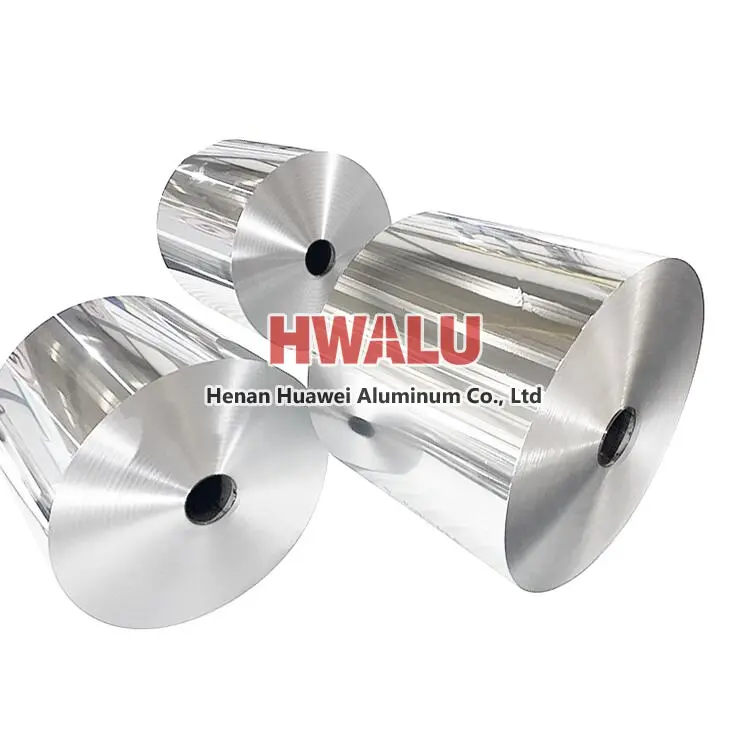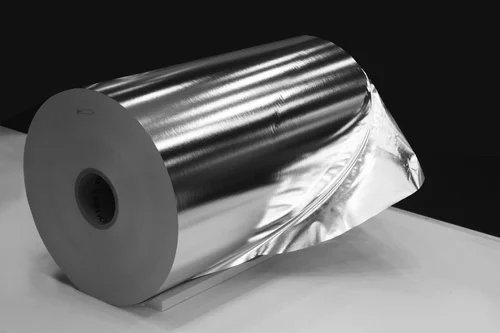What is Yogurt Lid Foil? Yogurt Lid Foil is made of food-grade aluminum foil material, which can ensure that no harmful substances are released and is harmless to the human body. Foil yogurt lid is usually in the process of making yogurt, aluminum foil is sealed on the cup lid by special sealing equipment. Because of the good moisture resistance and oxygen barrier properties of aluminum foil, it can effective ...
Aluminum foil for heat seal product Aluminum foil heat seal coating is a common packaging material. Aluminum foil for heat seal has good moisture-proof, anti-fluorination, anti-ultraviolet and other properties, and can protect food, medicine and other items that are susceptible to external influences. Characteristics of heat sealing aluminum foil During the production process of aluminum foil heat seal coa ...
Introduction to industrial aluminum foil What is industrial aluminum foil? Aluminum foil is a kind of aluminum rolled material. Aluminum foil mainly refers to thickness. In the industry, aluminum products with a thickness of less than 0.2mm are usually called aluminum foil. They are usually cut longitudinally at the edges and delivered in rolls. Industrial aluminum foil, as the name suggests, is an aluminum foil ...
What is Aluminum Foil for Condenser Fins Aluminum foil for condenser fins is a material used in the manufacture of condensers. A condenser is a device that cools a gas or vapor into a liquid and is commonly used in refrigeration, air conditioning, automotive and industrial applications. Fins are an important part of the condenser, and their function is to increase the cooling area and heat exchange efficiency, m ...
What is aluminum foil for wine Aluminum foil for wine has excellent properties such as moisture-proof, anti-oxidation, heat insulation, and odor insulation, which can protect the quality and taste of wine products. In wine packaging, common aluminum foil materials include aluminized polyester film, aluminized polyamide film, etc. Aluminum foil for wine usually has a certain thickness and strength, which ca ...
What is 1200 alloy aluminum foil? 1200 alloy aluminum foil for industrial pure aluminum, plasticity, corrosion resistance, high electrical conductivity, and thermal conductivity, but low strength, heat treatment can not be strengthened, poor machinability. This is a high-strength aluminum material that can pass heat treatment, plastic strength under quenching and newly quenched states, and cold strength during s ...
The thickness of aluminum foil for food packaging is generally between 0.015-0.03 mm. The exact thickness of aluminum foil you choose depends on the type of food being packaged and the desired shelf life. For food that needs to be stored for a long time, it is recommended to choose thicker aluminum foil, such as 0.02-0.03 mm, to provide better protection against oxygen, water, moisture and ultraviolet rays, th ...
1. The raw materials are non-toxic and the quality is safe Aluminum foil is made of primary aluminum alloy after rolling through multiple processes, and it has no harmful substances such as heavy metals. In the aluminum foil production process, a high-temperature annealing and disinfection process is used. Therefore, the aluminum foil can be safely in contact with food and will not contain or help the growth o ...
People are stepping up the search for safer, lower cost, more powerful battery systems that outperform lithium-ion batteries, so aluminum foil has also become a material for making batteries. Aluminum foil can be used in batteries in some cases, especially as an integral part of the battery structure. Aluminum foil is commonly used as a current collector for various types of batteries, including lithium-ion an ...
What is PE PE refers to polyethylene (Polyethylene), which is a thermoplastic obtained by polymerization of ethylene monomers. Polyethylene has the characteristics of good chemical stability, corrosion resistance, insulation, easy processing and molding, and excellent low-temperature strength. It is a common plastic material widely used in industry and daily life. According to different preparation methods, p ...
Aluminum foil is recyclable. Due to the high purity of aluminum foil materials, they can be reprocessed into various aluminum products after recycling, such as food packaging, construction materials, etc. Recycling aluminum, meanwhile, is an energy-saving process that involves melting down aluminum scrap to create new aluminum products. Compared to producing aluminum from raw materials, the recycling process of a ...
0.03mm thick aluminum foil, which is very thin, has a variety of potential uses due to its properties. Some common applications of 0.03mm thick aluminum foil include: 1. Packaging: This thin aluminum foil is often used for packaging purposes such as wrapping food items, covering containers, and protecting products from moisture, light, and contaminants. 2. Insulation: It can be used as a thin layer of insul ...











